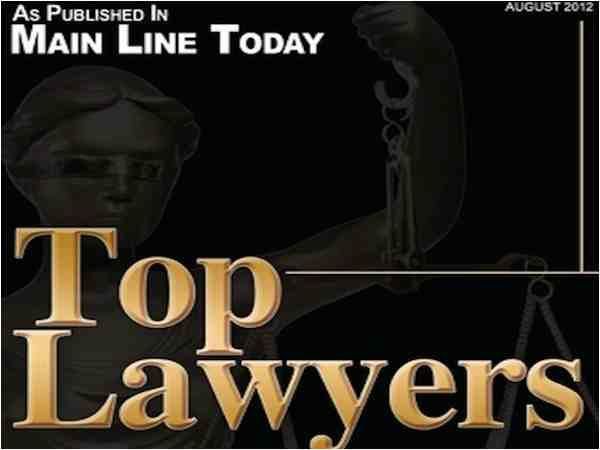
Click Link To Scroll
Doylestown Pa Guardianships Lawyers – The Introduction
There are circumstances when the appointment of a guardian is unavoidable. As there are simpler alternatives to a Pa Guardianship, one should only initiate guardianship proceedings after a problem has been identified for which there is no alternative solution.
Doylestown Pa Guardianships Lawyers – The Statute
A Pennsylvania court may appoint a “guardian of the person” for an individual who lives in Pennsylvania and a “guardian of the estate” for a person who has property in Pennsylvania if it determines after a hearing that the individual is “incapacitated” (previously referred to as “incompetent”).
An incapacitated person is: [A]n adult whose ability to of an appropriate court therefore.” 50 Pa. Cons. Stat. Ann. § 4417(c). This provision has been construed to apply to health care decisions that involve procedures other than “elective surgery.” This statute, however, does not permit substituted consent by providers for medical treatment in all cases. For example, it would not permit consent to psychiatric
treatment (which is governed by the Mental Health Procedures Act, 50 Pa. Cons. Stat. Ann. § 7101 et seq.), to AIDS/HIV testing (which is governed by 35 Pa. Cons. Stat. Ann. § 7605), or to medical treatment when an individual is refusing treatment. A service provider also cannot consent to the cessation of life- preserving treatment (i.e., treatment to save the life of a person who is not in an end-of-life situation).
Once appointed, the guardian is legally bound to act in the individual’s best interests. Guardians can be given specific authorities, such as the authority to handle the financial and legal affairs of the individual, or they may be granted larger authority, depending on the needs of the individual.
Setting up a legal guardianship can sometimes get complex, especially if other family members are not in agreement as to who the guardian should be. That is why the assistance of a Pennsylvania guardianship attorney is so valuable. John B Whalen Jr has been serving the people of Pennsylvania for over 30 years, and brings compassion and knowledge to the guardianship process.
Doylestown Pa Guardianships Lawyers – The Incapacitated Person
A Pennsylvania court may appoint a guardian of the person and/or of the estate for an individual who lives in Pennsylvania and a guardian of the estate for a person who has property in Pennsylvania if it determines after a hearing that the individual is “incapacitated.”
Doylestown Pa Guardianships Lawyers – The Proposed Guardian
Any qualified individual, corporate fiduciary, non-profit corporation, or county agency may serve as guardian. 20 Pa. Cons. Stat. Ann. § 5511(f).
If no other person is willing or qualified to serve, a guardianship support agency may be appointed by the court. 20 Pa. Cons. Stat. Ann. § 5553(a). If appropriate, the court shall give preference to a person suggested by the incapacitated person. Id.; Estate of Haertsch, 649 A.2d 719, 720 (Pa. Super. Ct. 1994).
The guardian must not have interests that conflict with those of the incapacitated person unless no alternative exists. 20 Pa. Cons. Stat. Ann. § 5511(f); see also Wilhelm v. Wilhelm, 657 A.2d 34, 49 (Pa. Super. Ct. 1995) (son of incapacitated person may be inappropriate guardian where son stands to benefit from money remaining in bank account upon father’s death and where there is history of hostile relationship between children and parents).
Doylestown Pa Guardianships Lawyers – The Petition
An interested person may file a petition in the Orphans Court for the appointment of a guardian for a person or the person’s estate.
The person who files the petition (the “petitioner”) must personally serve the person for who a guardian is sought (the “respondent”) with a copy of the petition and written notice of the time, date, and place of the proposed hearing at least 20 days prior to the hearing.
All guardianship petitions must include the following information (20 Pa. Cons. Stat. Ann. § 5511(e).).
- the name, age, residence, and post office address of the respondent;
- the names and addresses of the respondent’s spouse, parent(s), and presumptive adult heirs;
- the name and address of the person or institution providing residential services to the respondent;
- the names and addresses of other persons or entities that provide services to the respondent;
- the name and address of the person or entity whom the petitioner asks to be
- appointed as the guardian;
- an averment that the proposed guardian has no interest that is adverse to the respondent;
- the qualifications of the proposed guardian;
- the reasons why guardianship is sought;
- a description of the functional limitations and physical and mental condition of the respondent;
- the steps taken to find less restrictive alternatives; and
- the specific areas of incapacity over which the petitioner requests that the guardian be assigned powers.
Doylestown Pa Guardianships Lawyers – The Notice
The petitioner must complete a notice when the Alleged Incapacitated Person is served with the petition. They also must inform the respondent of his or her right to request the appointment of counsel and to have paid counsel appointed, if appropriate. The petition also must give notice to other interested parties, such as family members. 20 Pa. Cons. Stat. Ann. § 5511(a).
Doylestown Pa Guardianships Lawyers – The Counsel
A respondent may hire or retain counsel to represent him or her in a guardianship proceeding. The petitioner has an obligation to determine whether counsel has been retained by or for the respondent and must notify the court at least 7 days prior to the hearing if the respondent does not have counsel. The court, “in appropriate cases,” may appoint counsel at no cost to the respondent if counsel has not otherwise been retained to represent the respondent. 20 Pa. Cons. Stat. Ann. § 5511(a).
Doylestown Pa Guardianships Lawyers – The Hearing
In determining whether the respondent is incapacitated, the court must consider, among other things, the nature of the respondent’s disability and the extent of the person’s capacity to make or communicate decisions. 20 Pa. Cons. Stat. Ann. § 5512.1(a).
The petitioner must present testimony from an individual qualified by training and experience in evaluating individuals with the respondent’s alleged incapacities that establishes the nature and extent of the respondent’s incapacities and disabilities; the respondent’s mental, emotional, and physical condition; the respondent’s adaptive behavior; and the respondent’s social skills. 20 Pa. Cons. Stat. Ann. § 5518.
In addition, the petitioner must present evidence regarding:
- the services being utilized to meet the essential requirements for the respondent’s physical health and safety;
- the services being utilized to manage the respondent’s financial resources;
- the services being utilized to develop or regain the respondent’s abilities;
- the types of assistance required by the respondent;
- why no less restrictive alternatives would be appropriate; and
- the probability that the extent of the person’s incapacities may significantly lessen or change.
Doylestown Pa Guardianships Lawyers – The Testimony
To prove incapacity, the petitioner must present testimony from an individual qualified by training and experience in evaluating individuals with the respondent’s alleged incapacities that establishes:
- the nature and extent of the respondent’s incapacities and disabilities;
- the respondent’s mental, emotional, and physical condition;
- the respondent’s adaptive behavior; and
- the respondent’s social skills. 20 Pa. Cons. Stat. Ann. § 5518.
In addition, the petitioner must present evidence regarding:
- the services being used to meet the essential requirements for the respondent’s physical health and safety;
- the services being used to manage the respondent’s financial resources;
- the services being used to develop or regain the respondent’s abilities;
- the types of assistance required by the respondent;
- why no less restrictive alternative to guardianship would be appropriate; and,
- the probability that the extent of the person’s incapacities may significantly lessen or change.
Doylestown Pa Guardianships Lawyers – Limited vs. Plenary
The court will prefer to appoint a “limited guardian” if the respondent is partially incapacitated, but needs guardianship services. 20 Pa. Cons. Stat. Ann. § 5512.1(a)(6)
The court may appoint a “plenary guardian” of the person and/or estate only upon specific findings that the person is totally incapacitated and in need of plenary guardianship services. 20 Pa. Cons. Stat. Ann. §§ 5512.1(c), 5512.1(e).
Doylestown Pa Guardianships Lawyers – Model Court Accountings
Because the Guardian of the Estate is personally responsible for errors, filing a Model Court Formal Accounting each year is an extremely good – and virtually expected – idea. However, the Judge must approve the expense. Generally, the reasonable costs are reimbursable. This includes the cost of an Estate Planning Lawyer assembling and submitting the accounting. Professional Guardians, recognizing their liability, regularly file formal accounts.
Doylestown Pa Guardianships Lawyers – Considerations
In a guardianship case, the interests of many parties need to be considered. First and foremost are the interests of the individual who needs the Pa Guardianship.
Yet that’s just one aspect of a guardianship case. Sometimes the children or loved ones of the individual are not in agreement about who should be the guardian. In other cases, the individual who needs support may not be willing to accept it, and the case may need to go to court to prove that guardianship is required.
Public benefits, such as Social Security Disability and Supplemental Security Income (SSI), can be managed without a guardian through the appointment of a representative payee.
Doylestown Pa Guardianships Lawyers – Limitations
No Pa Guardian possesses the following powers, unless they are specifically and expressly authorized by the court:
- to consent to an abortion, sterilization, psychosurgery, electroconvulsive therapy or removal of a healthy body organ;
- to prohibit marriage or consent to divorce; or
- to consent to any experimental biomedical or behavioral medical procedure or be part of any biomedical or behavioral experiment.
Doylestown Pa Guardianships Lawyers – Health Care Agents
If the guardian is different than the health care agent, the health care agent is accountable to the guardian as well as the individual who made the advance directive. The guardian has the same power to revoke or amend the appointment of a health care agent, but does not have the
authority to revoke the advance directive or to amend its terms or instructions without judicial authorization.
Doylestown Pa Guardianships Lawyers – Compassion
The guardianship process can be filled with emotions. Realizing that a loved one is no longer capable of caring for his or her self can be difficult to accept. That’s why you need an attorney who offers legal services with compassion.
For the past three decades, I have built a reputation for providing compassionate legal care for his clients, putting their needs and interests first while navigating emotionally trying circumstances.
If you or someone you love needs the help of a legal guardian, I am ready to help.
John B. Whalen, Jr., JD., LL.M., is an AV Peer Review Rated Preeminent 5.0 and Avvo Rated 10.0 Superb (obtaining over 95 client reviews and peer endorsements) premier and prestigious Attorney and Counselor at Law. He is located at 8 Longwood Drive Wayne Pa 19087. He serves all surrounding counties, on all 7 days, from 9:00 AM to 10:00 PM, and on evenings, weekends, and holidays. He provides free initial consults all seven days, provides home visits, and provides flat fee structures. He can be reached by email at jw60297@me.com, and by telephone at 1-610-999-2157. He has amassed over 60 prestigious and premier professional awards and over 5000 client reviews and endorsements.



